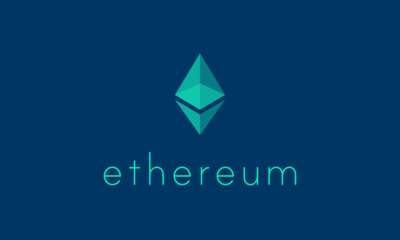In a new paper entitled “Blockchain Analysis of the Bitcoin Market,” Igor Makarov and Antoinette Schoar of the National Bureau of Economic Research detail the state of Bitcoin. Within the paper, a section on custody piqued the interest of a fintech CEO, as it highlighted concerns upon which he has long expounded.
“It’s hidden, but it’s there,” said Richard Gardner, CEO of Modulus, a US-based developer of ultra-high-performance trading and surveillance technology that powers global equities, derivatives, and digital asset exchanges. “About halfway through the paper, it talks about the current state of custody. Even beforehand, it discusses how, practically speaking, exchanges and wallets don’t often differ in significant ways. Both have a custodial aspect to them, but, if we’re talking about the future of digital assets, I don’t think you can make the argument that custody providers are all that they must be. In fact, it is just the opposite. We must expect much more from custodial services.”
On page ten, the paper notes:
“Cryptocurrency exchanges such as Coinbase, Binance, or Kraken, and on-line wallets such as Blockchain.info and BixIn are one of the major types of entities where Bitcoin can be stored and traded. Exchanges in theory provide platforms to trade Bitcoin against fiat currencies and other coins, while on-line wallets specialize in custodian services. However, in practice, the difference between exchanges and on-line wallets is often slim. Both types of entities in many cases offer both functions.
The paper continues to discuss custody as it relates to Bitcoin ownership, saying:
Determining the concentration of ownership is more complicated than just tracking the holdings of the richest addresses since not all large addresses represent individuals. Many public entities, e.g., exchanges and on-line wallets, hold Bitcoin on behalf of other investors. Therefore, the first step in our analysis is to differentiate between addresses belonging to individual investors and those belonging to intermediaries. When market participants deposit their bitcoins with exchanges or on-line and custodial wallets they forfeit their bitcoins to the exchange. Exchanges usually mix all deposits together and store them in the so-called cold wallets — Bitcoin addresses stored on special devices not connected to the Internet because of security concerns. A given intermediary typically has only a few Bitcoin addresses that constitute its cold wallet but these addresses hold very large balances. For example, the cold wallet of Binance, which is one of the largest cold wallets, holds 300,000 bitcoins as of the end of June, 2021.23 However, not all exchanges have a cold wallet that is as distinct as Binance’s cold wallet. Because cold wallets typically consist of few addresses and send and receive funds only infrequently, the default clustering algorithm in many cases does not link them to the corresponding hot wallets of exchanges. Therefore, identifying cold wallets presents a significant challenge.
“While the paper’s concern is to identify the state of Bitcoin ownership, there’s a more significant custody question. Since the industry’s beginnings, exchanges have been hacked. Many of the losses were due to the exchange’s failure to properly utilize cold storage best practices. When an exchange is in charge of custody, those decisions are made on a macro-level. Custodianship, right now, is an afterthought. There are only a handful of custody providers out there, and most of them have major security concerns,” noted Gardner.
Modulus is known throughout the financial technology segment as a leader in the development of ultra-high frequency trading systems and blockchain technologies. Modulus has provided its exchange solution to some of the industry’s most profitable digital asset exchanges, including a well-known multi-billion-dollar cryptocurrency exchange. Over the past twenty years, the company has built technology for the world’s most notable institutions, with a client list which includes NASA, NASDAQ, Goldman Sachs, Merrill Lynch, JP Morgan Chase, Bank of America, Barclays, Siemens, Shell, Yahoo!, Microsoft, Cornell University, and the University of Chicago.
“All you have to do is read the news. One of the leading vendors for custody services has been mired in a lawsuit which alleges they are responsible for the loss of $70 million in digital assets. $70 million in losses. Is that the company you want keeping your assets safe? It is time that the industry acknowledges that it must adapt. Custody must be prioritized if digital assets are ever to reach their full potential. Custody providers must put security at the forefront. If you can’t keep your assets safe from malfeasance or incompetence, what are they really worth?” queried Gardner.






 Naira4 weeks ago
Naira4 weeks ago


 Naira3 weeks ago
Naira3 weeks ago


 News4 weeks ago
News4 weeks ago
 Travel4 weeks ago
Travel4 weeks ago




 Naira4 weeks ago
Naira4 weeks ago
 Naira3 weeks ago
Naira3 weeks ago


 Jobs3 weeks ago
Jobs3 weeks ago


 Travel3 weeks ago
Travel3 weeks ago


















